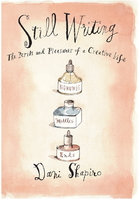When the beautiful princess was asked to kiss that wet, slimy, cold, ugly frog, she had a choice to make. She could continue in her current situation, alone and unhappy, or she could summon up her courage and take a chance with the frog, even though there were no guarantees.
All of us have a frog that we need to kiss, sometimes several frogs. The frogs in your life are negative people, situations, and past experiences; current problems; and your doubts and self-limiting beliefs. Some frogs are risks and commitments you have to make if you want to get unstuck and move ahead.
Face the Facts
Sometimes, to kiss your frog, you are really deciding to embrace the frog and accept that frogs can be slimy, cold, and ugly. Sometimes you are kissing the frog good-bye and letting go of a judgmental or guilt-provoking frog. Sometimes you are choosing to change your expectations and see the frog in a new way. Other times you may need to kiss the frog on the forehead and forgive it. There are many ways to eliminate frogs from your life.
Denial ain't just a river in Egypt.
MARK TWAIN
The world of psychology has identified two types of personalities: the “confronter” and the “evader.” Not surprisingly, confronters, people who face their fears, confront their reality, and deal honestly and straightforwardly with the people and problems in their lives, are much happier, more effective, and more self-confident than evaders.
Confronters acknowledge and face the fear involved in confronting. They take charge of their emotions. Evaders fear the unknown and lack the trust in themselves that is necessary to move ahead.
Fortunately, you can become a more powerful and positive person by resolving to “look your frog in the face before you kiss it”—by making it a habit to confront your situation honestly rather than to evade it or deny that you have a problem in the first place.
Be Realistic
In her counseling practice, Christina often deals with clients who are constantly disappointed by frustrated expectations. One young woman in her thirties would have her sessions after visiting her parents and talk about how upset she was that they would put out only limited effort to spend time with her when she made the effort to visit.
She discussed with Christina what she expected her parents to do when she went for a visit and worked to change her expectations. Once she decided that she would lower her expectations, she stopped being disappointed and her feelings toward her parents improved. She experienced her frog differently. By deliberately changing her expectations, she changed how she felt and took control of her emotions.
One of the truisms that everyone eventually learns is “People don't change.” Their basic personalities and attitudes solidify around the age of seventeen or eighteen and remain much the same for the rest of their lives. For this reason, it is always an exercise in frustration to try to get others to change.
This does not mean that people cannot develop new skills and abilities and become more of what they are truly capable of becoming, but in the absence of a real desire to change accompanied by hard work, very little change ever takes place.
The main point is that you must never sacrifice your own happiness or peace of mind by wishing and hoping that someone will change from what he or she has always been into someone else, someone who is more suitable to you. It is probably never going to happen.
Deal with Reality
Denial, or the refusal to face the truth or reality of your situation or of another person, is a major source of stress, anxiety, negative emotions, and even physical and mental illness. The opposite of denial is acceptance. When you accept that a person or situation, at home or at work, is the way it is and is not going to change and act accordingly, most of the stress generated by the situation fades away.
Separate Facts from Problems
Many negative emotions are triggered by an inappropriate overreaction to an unexpected setback or difficulty. It is vital that you carefully analyze a problem when it occurs to ensure that you thoroughly understand it and what you can do to deal with it or resolve it. Here's how to begin.
First, make the distinction between a fact and a problem. The difference is simple. A fact is something that is unchangeable. Your age is a fact. The weather is a fact. Certain things just are. They cannot be altered. They are facts.
One of the keys to happiness is to resolve to never become upset or angry about a fact. Just as you do not become angry at physical things, like a piece of furniture because you bumped into it, you do not become angry or upset about facts. You simply accept them and adjust your life and activities around them.
What, then, is a problem? A problem is something you can do something about. A goal unachieved is a problem unsolved. An obstacle in your path is a problem unsolved. You can focus your intelligence and ability on solving problems and achieving goals. Problems are simply challenges that you deal with as you go through life.
The Past and the Future
There are two time periods in your life: the past and the future. The present is a single moment passing between the two. Into what category of time do we put facts, and into what category do we put problems?
The truth is that most facts that make you unhappy exist in the past. Something that happened in the past is a fact. It is unchangeable. This is important to understand because many people are miserable and unhappy in the present because of something that did not work out the way they expected it to sometime in the past. But because it happened, or didn't happen, in the past, it is now an unchangeable fact. It does no good to be upset about a fact.
A problem exists in the future. A problem is an issue that you can do something about. This is an area where you can focus your intelligence and ability into achieving a different result. A problem, the future, is under your control, and its outcome is determined by what you do in the present.
A Rained-Out Picnic
Imagine that you run into a man at a social function and ask him, “How are you doing?” He replies with a sour look and says, “I am doing fine, but I am still really angry about what happened.”
A bit surprised, you ask, “What happened?”
He says, “Well, about five years ago, my family and I packed a picnic basket on Saturday night so that we could go out and have a nice picnic on Sunday. But on Sunday morning, it was overcast and it rained for the whole day, so we had to cancel the picnic. And I'm still mad.”
At about this time, you would probably be thinking, “This person needs a checkup from the neck up. He is not thinking rationally. How could he still be angry about the fact that it rained five years ago?”
The Gunnysacker
This may sound ridiculous, but many people today are still angry, upset, and even dysfunctional in their relationships and work because of a past event that cannot be changed. They are still mad or sad today because of a relationship that went sour years ago, an investment that lost money, or a job that didn't work out for whatever reason.
Instead of accepting the situation, they practice what is called “gunnysacking,” carrying it around with them, ready to pull it out and show to anyone who expresses interest. (You often meet them at social gatherings or sit next to them on airplanes.)
When Christina is working with clients who are struggling to let go of a past experience or setback, rather than pushing them to let go and move past whatever pet frog they've become attached to, she asks “How does it serve you to hold on to this issue/excuse/feeling?” This is a powerful question. We often hold on to a negative because it protects us from taking a chance on something new, such as taking a risk in a relationship or new business activity.
One of the hallmarks of happy, well-balanced people is that they look past their problems, their ugly frogs, straight in the eye, accept them as past events that cannot be changed, learn what they can from them, and then get so busy working on their lives and work that they don't have any time to think about them.
Analyze the Situation
One way that you can take control of a negative situation is by analyzing it carefully. You do this by asking questions. It is not possible for you to become or remain upset, angry, and out of control when you are asking questions and seeking to understand the situation or the change that has taken place.
Here are four questions you can ask to take control of any situation:
1. “What exactly happened?” At this stage, be patient. Strive for accuracy. Refuse to attack or blame someone or something for what has occurred. Instead, focus on clarity and understanding. Resolve to remain calm and unemotional.
2. “How did it happen?” Imagine that you are gathering evidence for a third party; you are more concerned with accuracy than with recrimination. Ask follow-up questions so that you thoroughly understand the details.
3. “What can be done?” Take control of your thinking by focusing on the future, on what can be done, rather than what has happened, which cannot be changed. This makes you more positive and puts you in control of your emotions and of the situation.
4. “What actions will we take now?” Instead of worrying or wallowing in pity or remorse, get busy taking whatever actions you can to resolve the situation and move forward.
Seek to Understand
Stephen Covey, in his book The 7 Habits of Highly Effective People, said, “Seek first to understand, then to be understood.” Focus on understanding the situation clearly before you make any judgment or come to any conclusions.
Avoid the tendency to “catastrophize,” to think or assume the very worst in a difficult situation. Very few things are ever as bad as they first appear.
Avoid the common mistake of confusing correlation with causation, of assuming that if two events occur at the same time, one of the events caused the other. This thinking error can lead to your jumping to conclusions—and to false conclusions at that. In many cases, two events happening together are merely coincidence. Neither of the events has anything to do with the other.
The key to analyzing a situation is to continue to ask questions and gather information. Sometimes, what appears to be a major setback or problem turns out not to be as serious as you thought. Often, what initially seems to be a problem is an opportunity to make a change, which is often a blessing in disguise.
The practice of acceptance rather than denial, of confronting rather than evading, of looking a frog in the face rather than pretending that it is not as unpleasant as it may be, are the hallmarks of the effective person. People who respond positively and constructively to the inevitable ups and downs of their work and personal lives are the most respected in every organization.
The Worry Buster
One of the best ways to eliminate worry is to use the “Worry Buster” on any situation that causes you stress or anxiety. There are four steps to using the Worry Buster method:
Step one: Define the worry situation clearly. What exactly are you worrying about?
Many people are worrying about something vague. Their thinking is confused. Like children in the night, they experience feelings of anxiety for reasons about which they are unclear. Or they do not have sufficient information, which can cause them to overreact.
In medicine, it is said, “Accurate diagnosis is half the cure.” The very act of defining your worry situation clearly, in writing if possible, will often suggest an immediate solution that eliminates the worry situation completely.
Step two: Determine the worst possible outcome of this worry situation. What is the worst thing that could possibly happen?
Most negative emotions and worry situations are caused by denial. People feel an enormous amount of stress because they deny the reality of a situation. They do not want it to be true. They hope that by ignoring it, it will go away or it will not be as serious. But this approach seldom works.
When you identify the worst thing that could possibly happen as a result of this problem situation, you often find that the potential outcome is not as bad as you thought. It may be the end of a relationship, but it won't kill you. It may be the loss of a certain amount of money, but it won't bankrupt you. Even if it does bankrupt you, the worry situation is a fact, not a problem, and has to be faced. You'll earn the money back at a later time, doing something different, in a different way and a different place. Think positively.
If the situation involves a health problem, resolve to confront it squarely. Refuse to play games with yourself. Do whatever you can to resolve the problem, and then trust your health to the experts and to a higher power.
Step three: Resolve to accept the worst, should it occur. Since most stress is caused by a refusal to identify and accept the worst possible outcome, once you resolve to accept the worst, should it occur, your stress disappears. You suddenly feel calm and at peace. When you replace denial with acceptance, you take full mental and emotional control of the situation.
Step four: Begin immediately to improve upon the worst. Do everything that you possibly can to minimize the damage, control the costs, and cut your losses. Become so busy taking action to resolve your difficulties that you don't have any time left to worry.
NOW DO THIS
Think of a recent setback that you experienced and ask yourself the following four questions. Observe yourself as you answer these questions and see if the process changes your experience of the situation.
What exactly happened?
How did it happen?
What can be done?
What actions will we take now?















